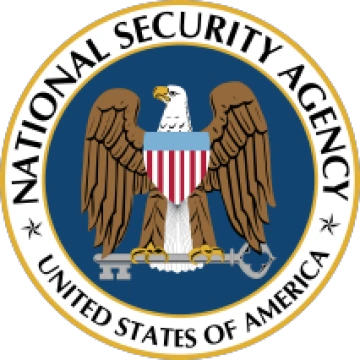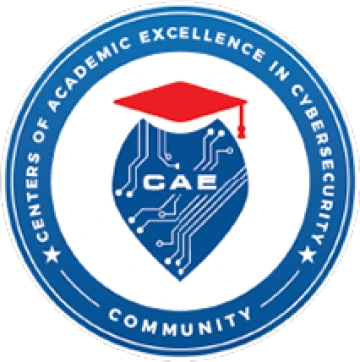Cyber Operations
Bachelor of Applied Science
Quick Facts


One of only 24 NSA-designated programs nationwide
#1
Online Bachelor's
in Cybersecurity
- Academic Influence
Rising cyber crime has created a global shortage of information security professionals, transforming this field into one of immense growth and opportunities. The Cyber Operations degree equips you to enter those roles and meet that demand.
The curriculum delivers offensive and defensive cyber security content within our state-of-the-art Cyber Virtual Learning Environment, which allows you to gain extensive hands-on experience and develop the knowledge, skills and abilities necessary to succeed after graduating. In addition, the Cyber Operations degrees offers three degree emphases: Engineering, Defense & Forensics, and Cyber Law & Policy.
The National Security Agency has designated the University of Arizona’s Cyber Operations program as a Center of Academic Excellence in Cyber Operations (CAE-CO). With this designation, the University of Arizona joins an extremely exclusive group of only 24 programs in the nation. The NSA’s CAE-CO designation demonstrates that the Cyber Operations program meets the most demanding academic and technical requirements.
Qualified students in the Cyber Law & Policy emphasis may also be eligible for the College of Applied Science and Technology's Accelerated Master's Program (AMP), which allows exceptional students to complete both a BAS in Cyber Operations and a Master of Legal Studies in as little as three years.
*Residents of some U.S. Territories may not be eligible. Please see our Eligibility & State Authorization page for more information.
Outcomes
Skills
Earning your Bachelor of Applied Science in Cyber Operations will build core skills, including:
- Assembly programming
- C Programming
- Cellular communications
- Cyber defense
- Digital forensics
- Ethics
- Malware analysis
- Network security
- Networking
- Operating system security
- Operating systems
- Python programming
- Risk analysis
- Risk management
- Software reverse engineering
- Wireless networking
Potential Career Paths
Graduates of the Cyber Operations program will be prepared to pursue the following careers:
Areas of Emphasis

The Engineering Track is a deeply technical, interdisciplinary, security-focused computer science program that meets the NSA Center of Academic Excellence in Cyber Operations (CAE-CO) academic requirements.
Cyber Engineering Emphasis Courses
Acquisition of the methodologies used to safely perform static and dynamic analysis of software of potentially unknown origin, including obfuscated malwares, to fully understand the software's functionality and specifications.
A broad survey of cyber warfare tools, techniques and procedures, as well as cyber warfare policy, doctrines, and constraints.

The Defense & Forensics Track is an interdisciplinary cyber education program that conforms to academic requirements from the NSA’s Centers of Academic Excellence in Cyber Operations (CAE-CO) and Cyber Defense (CAE-CD).
Defense & Forensics Emphasis Courses
Study of intrusion detection methodologies, tools, and approaches to incident response; examination of computer forensic principles, including operating system concepts, registry structures, file system concepts, boot process, low-level hardware calls, and file operations.
Introduction to the policies, techniques, and operational capabilities and limitations involved in implementing defensible network architectures.

The Cyber Law & Policy emphasis combines highly technical, hands-on cyber curriculum with a strong foundation in law, strategy, and policy relevant to cyber professionals. The technical cyber courses conform to the academic requirements from both the National Security Agency’s Centers of Academic Excellence in Cyber Operations (CAE-CO) and Cyber Defense (CAE-CD).
Cyber Law & Policy Emphasis Courses
An in-depth investigation of threat actors and the techniques they employ to attack networks. Formal ethical hacking methodology including reconnaissance, scanning and enumeration, gaining access, escalation of privilege, maintain access and reporting is examined.
Decision-making structures, processes, and outcomes relevant to American security policy; comparison with major foreign powers.
Arizona Online Cyber Ops Program
The University of Arizona’s ground-breaking Bachelor of Applied Science in Cyber Operations just became even more exciting.

Focused on the Future with Cyber Operations
Sadrud-Din is applying the structure and discipline he has learned in the military to his Arizona Online Cyber Operations program. Learn how Sadrud-Din is utilizing what he learns in his program to work towards his future.

Hands-on Learning
Cyber Operations courses maximize your ability to learn by doing. Cyber is a highly technical field, and our courses provide the hands-on experience needed to become a successful cyber professional. You’ll not only learn the concepts and technologies, but also demonstrate mastery of the course content through hands-on exercises and interactive assessments.

Cloud Computing
You won’t need expensive, high-performance computer equipment – only a broadband Internet connection and a computer running Windows, Linux or Mac. We provide everything else through a cloud-based Virtual Learning Environment. Advanced cyber tools and the world-class CyberApolis virtual city are preconfigured and provided so you can focus on learning.











